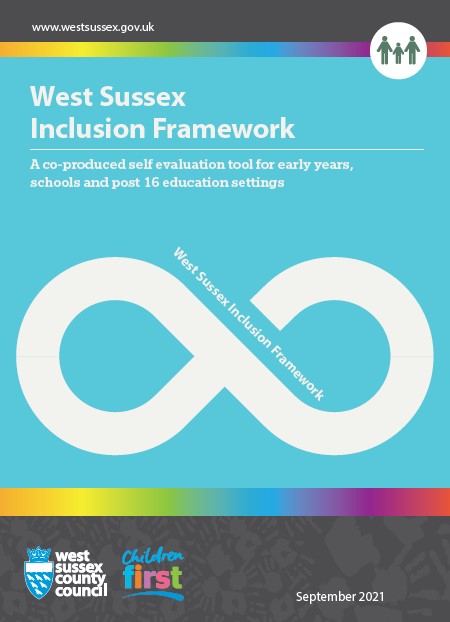
West Sussex Inclusion Framework September 2021 doc
Is there evidence that…
- The school balances the need for consistent implementation of behaviour policies with the need to make reasonable adjustments to meet the needs of individuals and the Equalities Act 2010.
Discussion prompts / evidence of impact
- Behaviour policies are personal to the school and reflects its uniqueness and provision. It encourages pro-social behaviours and allows for a range of approaches tailored to specific children and young people’s (CYP’s) needs and circumstances.
- Staff, parents and CYP evaluate the impact of behaviour policies at a developmentally appropriate level. They can discuss positive and negative outcomes and can describe adaptations that have been made as a result.
- Consideration should be made to discuss behaviour policy and any behaviour incidents or sanctions with parents who use English as an additional language, to ensure thorough understanding of procedures.
- Staff are trained in appropriate de-escalation approaches. When de-escalation techniques are implemented, behaviour incidences are effectively recorded and analysed, and individual plans are updated.
- All staff remain professional, are trained in and use restorative techniques in the face of all behaviours. Staff strive to identify the need communicated by the CYP’s behaviour and endeavour to meet that need.
- There are opportunities to explore recent developments in neuroscience, see SEND Toolkit, and its links to brain development, the stress system and trauma. Staff can link this to practice and policies that support emotional regulation and de-escalation.
- All staff use creative restorative approaches to resolve conflict or re-engage those returning to school. CYP facilitate restorative approaches with their peers.
- Fixed-term and internal exclusions are only used when appropriate. Excluded CYP are effectively supported to make a timely reintegration back into school. Permanent exclusion is only used as a last resort.
- Records of exclusions are regularly analysed to ensure that no group of CYP is represented more than others. Staff acknowledge that their own unconscious bias will play a part in how behaviour is addressed and sanctioned. The school provides systems to allow all staff to reflect on their attitudes and assumptions in a non-judgemental way.
- Physical intervention is rarely used. Staff know that this can be particularly difficult for CYP with needs such as autism, and staff understand the legal framework of positive handling intervention to respond in a safe and appropriate way when managing behaviours that challenge. If physical restraint is used, staff are well trained, competent and supported. All incidents are accurately recorded, reported to parents and scrutinised by a senior member of staff not involved in the intervention.
Last updated 16 August 2021
 Tools for Schools
Tools for Schools